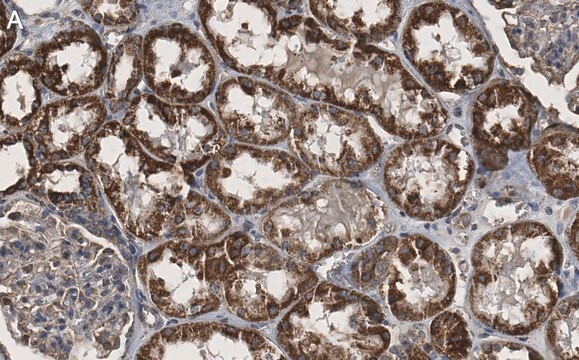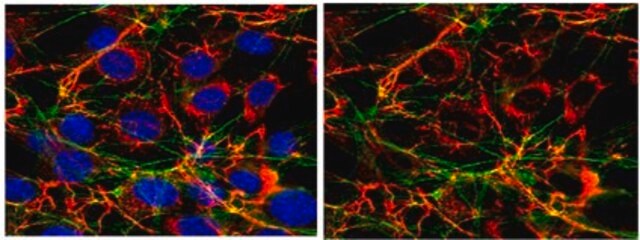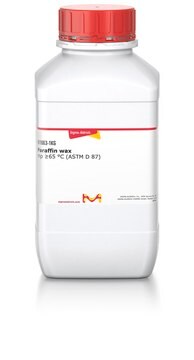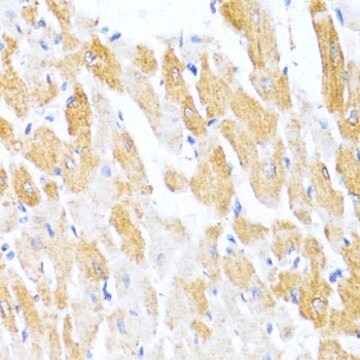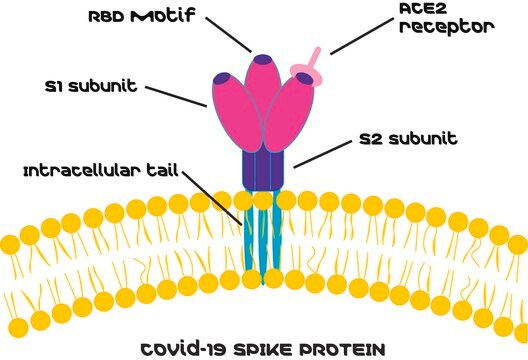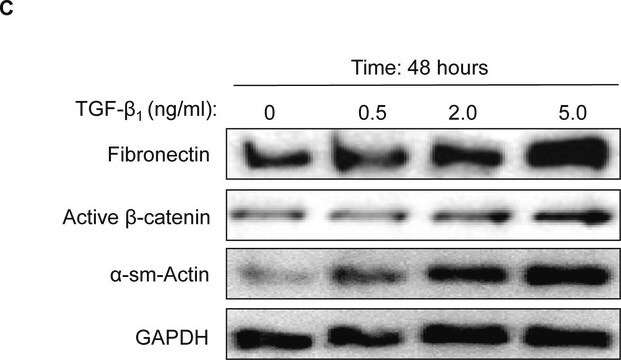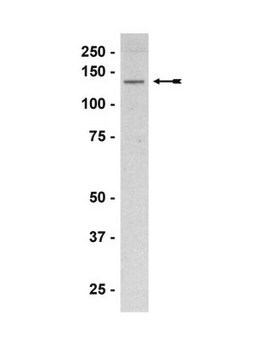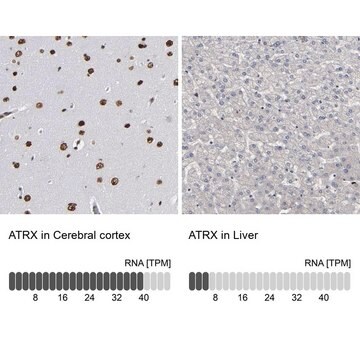SAB4200401
Anti-CTGF antibody, Mouse monoclonal
clone CTGF-14, purified from hybridoma cell culture
Sinônimo(s):
Monoclonal Anti-CCN family member 2, Monoclonal Anti-CCN2, Monoclonal Anti-CTGF antibody produced in mouse, Monoclonal Anti-Connective tissue growth factor, Monoclonal Anti-HCS24, Monoclonal Anti-Hypertrophic chondrocyte-specific protein 24, Monoclonal Anti-IBP-8, Monoclonal Anti-IGF-binding protein 8, Monoclonal Anti-IGFBP-8, Monoclonal Anti-IGFBP8, Monoclonal Anti-Insulin-like growth factor-binding protein 8, Monoclonal Anti-NOV2
About This Item
Produtos recomendados
fonte biológica
mouse
conjugado
unconjugated
forma do anticorpo
purified from hybridoma cell culture
tipo de produto de anticorpo
primary antibodies
clone
CTGF-14, monoclonal
Formulário
buffered aqueous solution
peso molecular
antigen ~38 kDa
reatividade de espécies
human
concentração
~1.0 mg/mL
técnica(s)
immunoprecipitation (IP): suitable
western blot: 0.25-0.5 μg/mL using whole extracts of HEK-293T cells over-expressing CTGF.
Isotipo
IgG1
nº de adesão UniProt
Condições de expedição
dry ice
temperatura de armazenamento
−20°C
modificação pós-traducional do alvo
unmodified
Informações sobre genes
human ... CTGF(1490)
Descrição geral
Especificidade
Imunogênio
Aplicação
Ações bioquímicas/fisiológicas
forma física
Armazenamento e estabilidade
Exoneração de responsabilidade
Não está encontrando o produto certo?
Experimente o nosso Ferramenta de seleção de produtos.
recomendado
Código de classe de armazenamento
10 - Combustible liquids
Ponto de fulgor (°F)
Not applicable
Ponto de fulgor (°C)
Not applicable
Escolha uma das versões mais recentes:
Certificados de análise (COA)
Não está vendo a versão correta?
Se precisar de uma versão específica, você pode procurar um certificado específico pelo número do lote ou da remessa.
Já possui este produto?
Encontre a documentação dos produtos que você adquiriu recentemente na biblioteca de documentos.
Nossa equipe de cientistas tem experiência em todas as áreas de pesquisa, incluindo Life Sciences, ciência de materiais, síntese química, cromatografia, química analítica e muitas outras.
Entre em contato com a assistência técnica